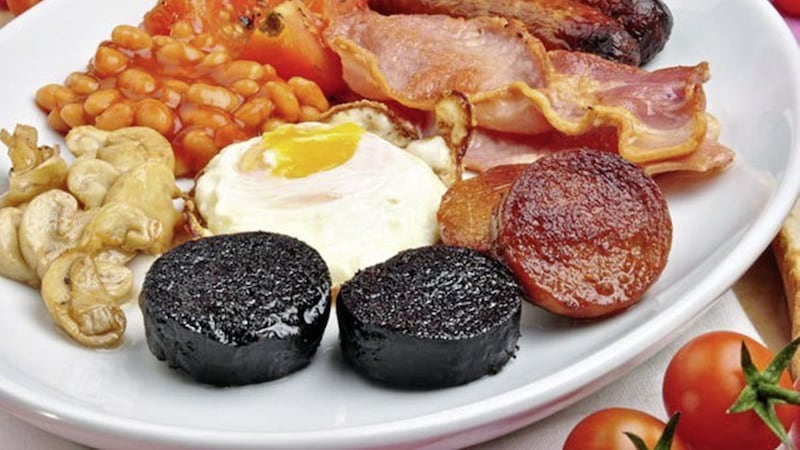THE price of a full Irish breakfast could rise by nearly 13 per cent if World Trade Organisation (WTO) rules come into effect post Brexit KPMG has warned.
The professional services firm has estimated that the that the total cost of a typical family-sized shopping list for some of the key ingredients of the breakfast favourite – including bacon, sausages, mushrooms and brown sauce – would increase by 12.8 per cent if the UK were to leave the EU without a trade deal or transitional agreement.
In the event no transitional agreement or trade deal is in place by March 2019 the UK would likely default to the World Trade Organisation’s (WTO) customs rules, with imported goods, particularly food and drink items to among the hardest hit by increased tariffs.
Pure orange juice (from Spain but bottled in Ireland) and olive oil (from Italy and Spain) were among the items set to incur the biggest increase, at 34 per cent and 30 per cent respectively. Sausages would incur an hike of 20 per cent, butter is expected to increase in price by 25 per cent, while the estimated cost of bacon would be nine per cent higher.
Partner and head of tax at KPMG Northern Ireland Johnny Hanna said WTO tariffs could have a significant impact on both consumers and retailers in Northern Ireland.

“If the UK leaves the EU without a trade deal or transitional agreement, we can expect both higher prices and a huge spike in red tape at the borders. As such, the top priority for businesses is to fully understand their own supply chains."
Frankie Devlin, partner at KPMG in Northern Ireland added: “Shoppers could be forgiven for overlooking the significant impact customs will have on the prices they pay at the till. However, against a backdrop of increasingly squeezed margins, it is unlikely retailers will be able to hold the flood on higher costs indefinitely.”


